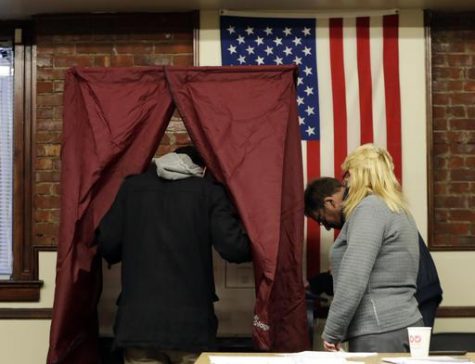General election unaffected by voter fraud
November 21, 2016
On November 8, 2016, the American people voted for their future.
Many, it seems, were not satisfied with the decision made by the people. Donald J. Trump, the Republican candidate, clinched the election, winning 290 electoral college votes. However, people are questioning if this outcome was just, or if some sort of fraud was pulled on the American people.

Voter fraud, which refers to any crime related to the electoral process, made headlines during the primaries last year, when supporters of Bernie Sanders accused the Democratic National Convention of rigging the vote in favor of
Hillary Clinton. Although the accusations were never substantiated, they certainly raised some questions about the security of voting in the United States.
Trump had concerns about the general election being rigged after the primaries, but now that he has claimed the spot as president-elect, people are questioning whether this election was rigged in favor in Trump.
Since this election was already controversial, even people outside of the United States were concerned about the outcome and making sure it was fair. According to CNS News, the Organization for Security and Co-operation in Europe sent several hundred observers to America to spectate the election. In the 2012 election, the OSCE sent 44 observers, and this year they sent more than ten times that number.
There have been no substantial reports about election rigging since the fateful election day. Along the same lines, there have been no reports of voter fraud.
A voter fraud scare in Pennsylvania occurred on November 1, when PA police seized and searched the offices of FieldWorks LLC, a campaign group that does Democratic groundwork. The police forces were reported to have been searching for any templates or evidence of fraudulent voter registration forms. However, this investigation has not yet proven anything.
This is often the way with voter fraud. In the weeks leading up to the election, Trump encouraged supporters to be wary of voter fraud, claiming “people that have died 10 years ago are still voting,” a fact that has been disproven. While there are almost 2 million deceased people who are still registered, they do not affect the outcome of the election because they cannot vote. Most fears about voter fraud are discounted because in-person voter fraud rarely occurs and does not have an effect on the outcome.
The most prevalent method of voter disenfranchisement is actually one that the American people have long accepted– the electoral college. In this election, Clinton won the popular vote, but because Trump got more electoral votes, he won the election.






